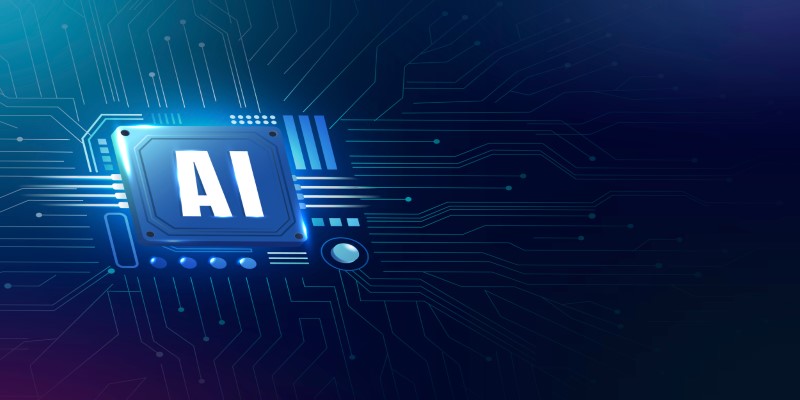The Future of AI: How Innovations in Artificial Intelligence Are Redefining Our World
Nov 15, 2024 By Susan Kelly
Artificial intelligence (AI) is more than just a buzzwordits an evolving force reshaping every aspect of our world. Today, AI technologies go beyond what was once science fiction, delivering real-world solutions that impact sectors like healthcare, finance, education, and more. AIs continuous evolution highlights a unique synergy between different types of AI applications, each complementing and strengthening the other.
This "match made in AI heaven" is not only about technology but about new pathways for innovation, problem-solving, and efficiency. Here, we will look at how AI applications are changing the future, with an emphasis on areas where progress has made seamless collaboration between different facets of artificial intelligence.
AI Application Across Sectors
The transformative power of AI lies in its ability to bring together insights and capabilities across domains. The integration of machine learning, natural language processing, and computer vision technologies has transformed industries in ways that were unimaginable just a few decades ago.
Healthcare is indeed changing diagnostics and treatment
.
Artificial intelligence is changing the concept of diagnostics and personal treatment within healthcare. The use of machine learning on a gigantic scale from medical records, imaging, and genetics makes it possible to predict disease and tailor treatment. Therefore, the AI tool has created a synergistic process that brings image analysis together with patient data analytics.
From early diagnostics to personalized medicine, AI applications increase quality patient care by accelerating diagnostic procedures and aiding in drug discovery. They provide an interactive experience that shows how artificial intelligence can be useful in many disciplines.
Finance: Automation and Predictive Power in Markets
It would provide more automation and better predictive analytics in finance, enabling very accurate insights into markets. It would enable huge amounts of data to be processed through algorithms developed on stock exchanges, news feeds, etc. With this, a trend of potential risks would be traced through the system and predicted in advance, hence aiding quick optimization of the strategy with respect to investments or risks.

AI, with the synergy between predictive analytics and natural language processing, can make fast, intelligent decisions. This is especially useful in quick-paced fields, such as stock trading, where rapid decisions often impact the endgame results.
AI-Driven Solutions in Everyday Life
Beyond business and healthcare, AI is quietly enhancing day-to-day life. From virtual assistants to recommendation algorithms, AI applications are seamlessly woven into modern lifestyles. These applications represent more than just individual capabilities; they embody the ways AIs various branches complement one another, enhancing user experience.
Smart Homes and Virtual Assistants
Home automation and virtual assistants exemplify AI's integration into personal life. Devices powered by AI can learn from user preferences, managing everything from lighting to climate control. These smart-systems often use machine learning and natural language processing together, enabling them to interact with users more intuitively. Virtual assistants like Siri and Alexa bring a personal touch to technology by understanding commands, predicting user needs, and continuously learning to improve future responses.
Through the combination of voice recognition, language processing, and machine learning, these systems create a user-friendly, responsive environment that makes life more convenient. Virtual assistants evolve to meet personal preferences, meaning they dont just respond to requeststhey anticipate them, which is an essential element in making AI truly beneficial in daily life.
Personalized Content and Recommendation Systems
Recommendation algorithms are another significant example of AIs synergy in action. Streaming platforms like Netflix and Spotify use machine learning to analyze user preferences, creating a unique profile that shapes content recommendations. These platforms utilize data from user history, preferences, and even demographic insights, allowing them to deliver highly personalized suggestions.
This convergence of different AI branches makes it possible to create an immersive, personalized experience. In combining machine learning with predictive analytics, these platforms not only cater to users current tastes but also introduce them to new content, thus enhancing user engagement. This synergy between AI technologies ensures that each users experience remains engaging and relevant, embodying the potential AI holds for other sectors.
The Future of AI: Ethical Considerations and Continuous Learning
As AI continues to evolve, it raises important questions about ethics and responsible innovation. With the expansion of AI applications, theres a growing emphasis on ensuring AI operates within ethical boundaries, particularly in areas involving privacy, bias, and transparency.
Addressing Bias and Privacy Concerns
AI systems, especially those involved in data-driven applications, can sometimes inherit biases from the data theyre trained on. This issue is especially critical in sectors like law enforcement or hiring, where decisions influenced by AI have direct consequences for individuals. Tackling this problem requires a concerted effort to monitor and adjust algorithms, ensuring that AI remains fair and objective.

Privacy is also a key concern as AI increasingly relies on personal data to function effectively. Transparent data collection and usage policies are essential for maintaining trust between users and AI systems. By establishing clear ethical standards, developers and policymakers can work together to address potential pitfalls, ensuring that AI serves society equitably and responsibly.
The Role of AI in Education and Workforce Development
AI's continued expansion will require a workforce skilled in understanding and managing these technologies. Educational institutions are already adapting and integrating AI courses into curriculums and creating programs that focus on the ethical, technical, and practical aspects of AI. This shift ensures a pipeline of future professionals who understand not only AI's technical side but also the broader impact of its applications on society.
In the workplace, AI-driven systems are improving efficiencies and redefining roles. Tasks that once required hours can now be accomplished in minutes, allowing employees to focus on more complex, creative responsibilities.
Conclusion
AIs integration into healthcare, finance, and everyday life is paving the way for a future where technology aligns seamlessly with practical needs. This collaboration goes beyond isolated applications, opening doors to greater efficiency, personalization, and data-driven decision-making. As AI advances, ethical considerations, transparency, and ongoing learning are essential to ensure AI benefits society responsibly. By fostering this powerful partnership, we can harness AIs full potential, creating a transformative alliance that positively shapes the decades to come.

Oct 05, 2023 Susan Kelly

Dec 14, 2023 Triston Martin

Dec 01, 2023 Triston Martin

Dec 13, 2023 Susan Kelly

Nov 12, 2023 Triston Martin

Dec 01, 2023 Triston Martin